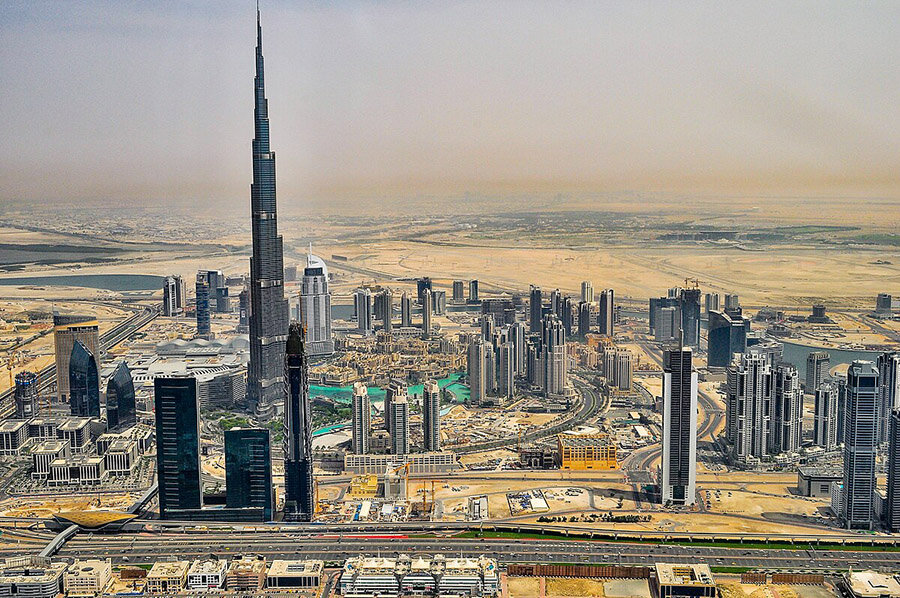Real Estate / Вusiness / Investments / Analytics / Reviews / News / United Arab Emirates / Real Estate UAE 06.05.2025
Dubai Real Estate: Slowing Growth and Market Overheating Risks in 2025

Dubai’s real estate market, after years of rapid growth, is now facing its most serious challenges since the pandemic. According to Bloomberg, housing prices in the emirate have risen nearly 70% since late 2020. However, this rally may be at risk of stagnation—or even price corrections—amid global disruptions.
Over the past four years, Dubai has outpaced most major global cities in price growth. Yet new tariffs imposed by U.S. President Donald Trump, combined with falling oil prices, pose significant risks for continued expansion. Geopolitical instability further adds pressure on the region’s economy. Oil prices fell below $65 per barrel following OPEC+’s decision to increase supply amid rising trade tensions. This downturn weighs on Gulf economies, which remain heavily dependent on oil revenues.
According to Mohammed Ali Yasin, founder of Oracle Financial Consultancy and Investments, falling oil prices could reduce expat employment—a key driver of Dubai’s real estate demand. Growth had already slowed last year: in 2024, prices rose 16%, down from 20% in 2023, signaling growing buyer resistance to high price levels.
Taimur Khan, head of research for the Middle East and Africa at JLL, notes that Dubai’s high dependence on foreign investment makes it vulnerable to global asset fluctuations. Economic slowdowns in China and other major markets may affect investors’ willingness to transact in Dubai, especially if uncertainty spreads to their home economies.
Dubai’s link to oil prices is well documented. Between 2014–2020, average housing prices in the emirate fell by a third amid a global oil slump. Today, experts warn of similar risks. Yasin points out that if oil prices hover near $60, government spending may decline, leading to weaker economic activity and job creation.
Impacts extend beyond the UAE. Goldman Sachs warns that Saudi Arabia’s budget deficit could reach $67 billion, leading to project cancellations. This would directly affect Dubai, home to regional headquarters of many firms operating in Saudi Arabia. Reduced Saudi investments could also impact UAE’s labor market.
Still, despite warning signs, Dubai’s market remains active—supported by steady sales and transaction volumes. Muhammad Binghatti, CEO of Binghatti Properties, stated that the company completed all planned deals despite recent volatility. Lewis Harding, CEO of Betterhomes, believes oil’s impact has diminished thanks to long-term visa programs like “golden visas”, encouraging affluent foreign residents to stay longer.
A weakening U.S. dollar is also playing a role: Bloomberg’s Dollar Spot Index fell 2.4% to its lowest level since October. Since Gulf currencies are pegged to the dollar, Dubai real estate is becoming more affordable for foreign buyers. Yet financial markets show nervousness: shares of Dubai’s largest developer, Emaar Properties, fell over 10% after tariffs were announced on April 2. Rival Aldar dropped 5%, despite a 40% gain over the past year. Analysts caution that potential currency devaluations in trade-affected countries could undermine Gulf competitiveness. As Khan puts it, there remain many “known unknowns” that could shift market trajectories.
Additional risks are flagged by other sources. A Deloitte report notes that in 2024, Dubai rents increased 19%, pushing household income shares devoted to housing to record highs—raising social stress risks amid rising living costs.
According to JLL, the UAE attracted 47% of all construction contracts in the region in 2024, totaling $34 billion. However, disproportionate investment in residential projects leaves the market sensitive to external economic shocks.
Knight Frank forecasts an 8% price increase in 2025, but warns that luxury home shortages are temporary. Around 19,700 new villas have been announced, which could lead to oversupply and price corrections.
In this environment, investors viewing Dubai as a safe haven increasingly face uncertainty. High reliance on external demand, global correction risks, and local oversupply make the market vulnerable to shocks. Much will depend on oil prices, global economic stability, and Dubai’s adaptability to shifting macroeconomic conditions. Moreover, past boom-bust cycles raise concerns of another property bubble forming and bursting.








